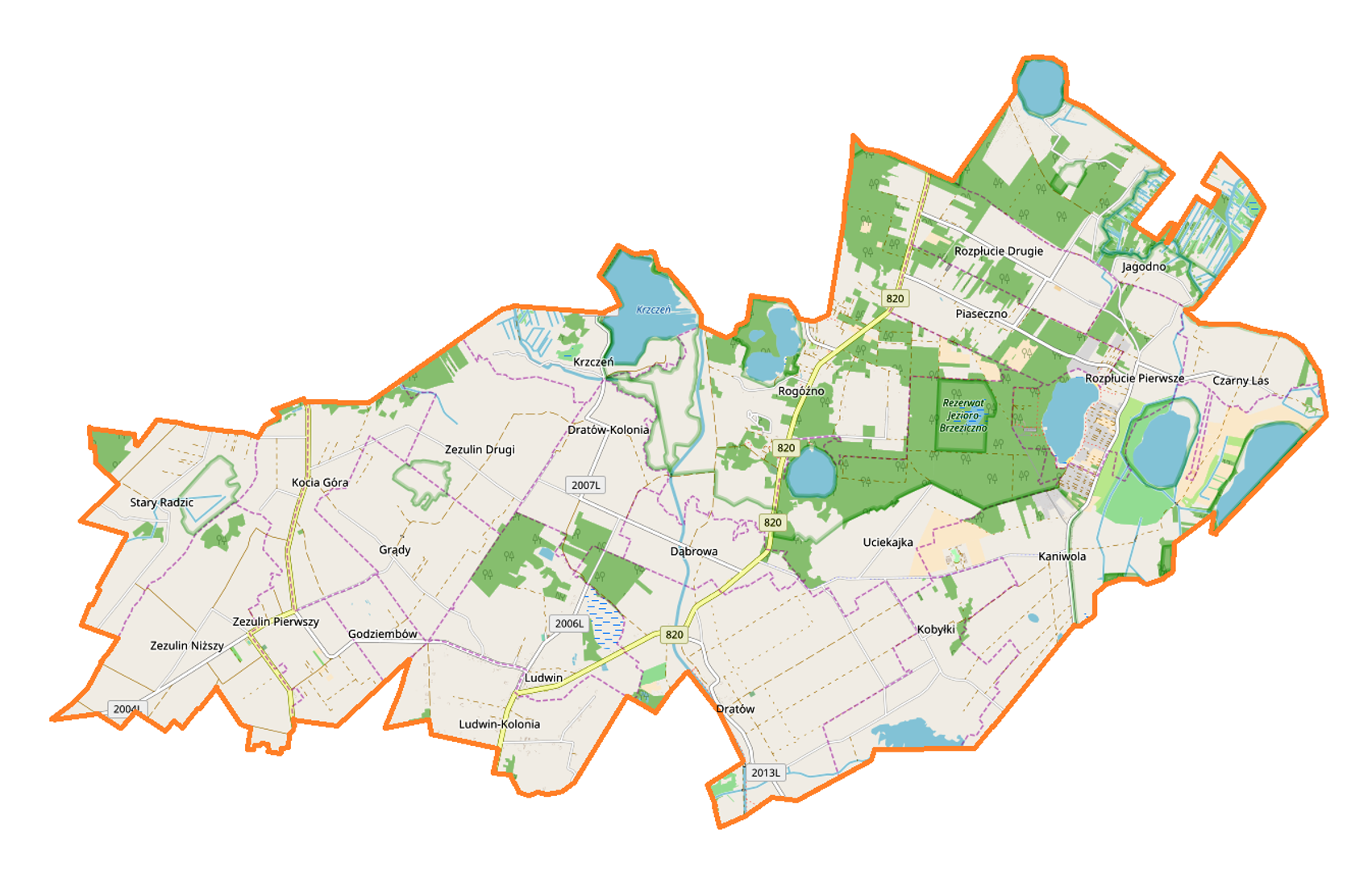Ludwin
6.77

Overview
The Ludwin Commune, located in the Lublin Voivodeship within the Łęczyński County, boasts a rich history and a diverse demographic and economic structure. The seat of the commune is Ludwin, which is part of the Lublin agglomeration. Covering an area of 122.2 km², the commune had a population of 5,584 in 2018. Within its nature protection area lies the Jezioro Brzeziczno Nature Reserve, which safeguards aquatic vegetation and peat bogs. In the 19th century, the commune belonged to the fourth district municipal court in Zezulin, and in 1901, German settlers established the Dratowski Las colony. The commune's rich history reveals that in 1921, Ludwin appeared as both a village and a colony. The area was characterized by religious diversity, and to this day, several cultural institutions remain, including the Roman Catholic church in Rogóźno and the Orthodox church in Dratów. In 1928, the commune was known for beekeeping, with 722 beehives, and had its own industry, including mills and oil presses. In terms of education, the commune features various schools, such as the Ludwin School Complex and kindergartens. Local culture is supported by the Municipal Public Library and the Municipal Center for Culture and Sports, which organize numerous recurring events, such as Zezulin Days or the Bread and Pasta Festival. Transport within the commune is primarily provided by provincial roads and private minibus operators. In recent years, the commune's mayors have included Zygmunt M. Ogórek and the current mayor, Andrzej M. Chabros. The Ludwin Commune consists of 21 village administrations, with the interesting note that the village of Godziembów does not hold such status. The commune borders numerous neighboring municipalities, such as Łęczna, Urszulin, and Puchaczów, which positively influences its development and access to services.
Location
You can also find here:
2026 Wizytor | All Rights Reserved

